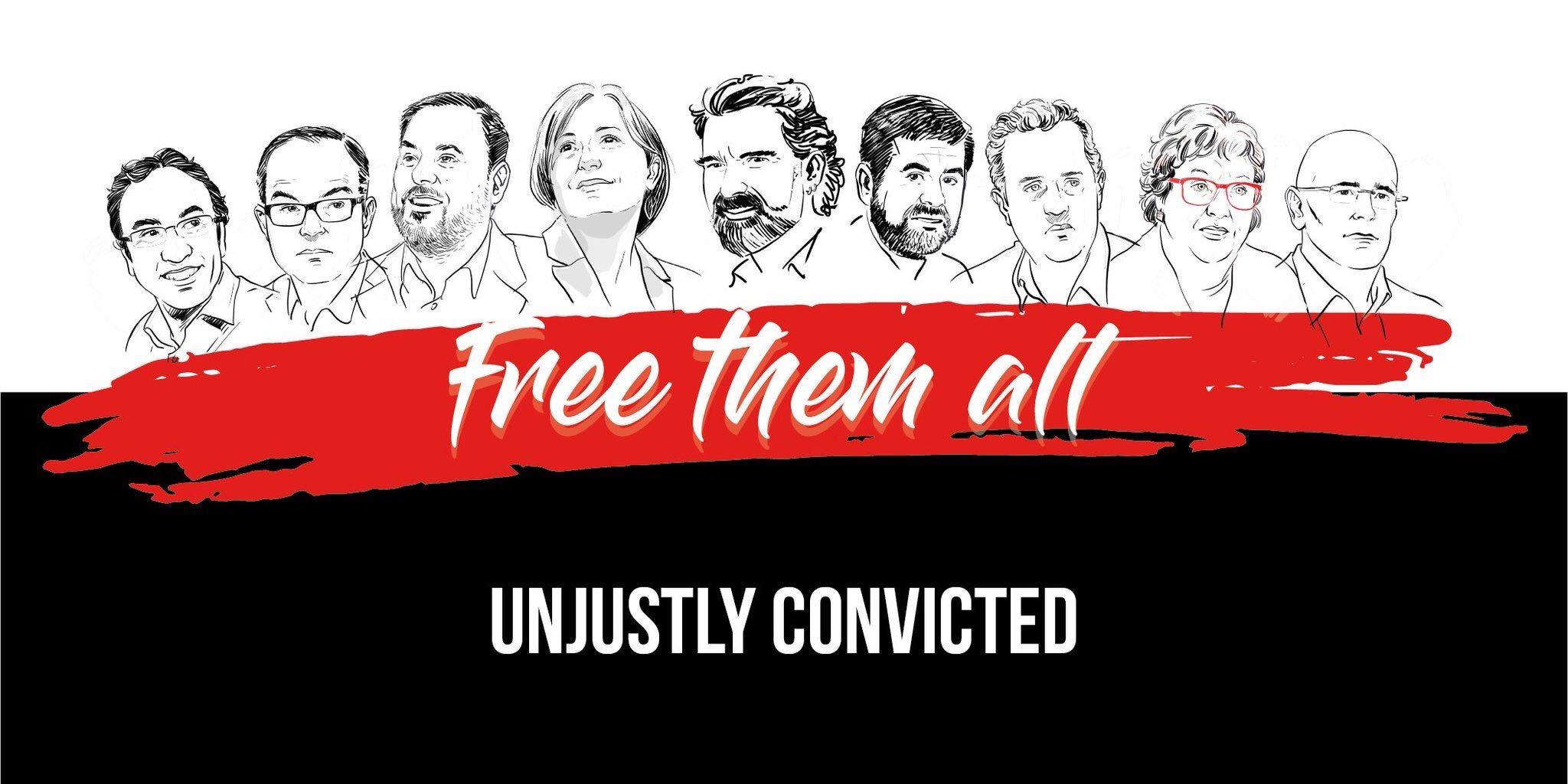
Spain’s Supreme Court on Oct. 14 ordered imprisoned nine Catalan political leaders—with sentences ranging from nine to 13 years for the crimes of sedition and misuse of public funds—over their role in organizing the 2017 independence referendum. The sentences are each followed by equal periods of absolute ineligibility for public office. Oriol Junqueras—the former vice-president of Catalonia and the highest-ranking of the defendants—received the longest sentence. Three others were found guilty of disobedience and fined. The sentences have sparked protests in the region, with assembled crowds causing flights to be canceled at Barcelona’s airport. Police used batons and rubber bullets to regain control of the facility. Demonstrators also gathered at Barcelona’s Plaça San Jaume, the seat of the Catalan government, and erected barricades across roads and rail lines elsewhere in the city. Catalonia’s feared anti-riot force, the Mossos d’Esquadra, has been mobilized to clear the streets. (BBC Newsround, Jurist, The Local, Spain; infoLibre, Spain)
Image via Twitter





Spain bars Catalan independence leader from taking EU parliament seat
The head of the criminal division of Spain’s Supreme Court sent a letter to the EU Parliament on Thursday stating that the 13-year prison sentence for Oriol Junqueras, a Catalan independence leader, would bar him from sitting in the EU parliament. (Jurist)
Spanish rightists rally against amnesty for Catalan leaders
Tens of thousands of protesters packed the streets of Madrid on June 13 to rally against plans to pardon 12 Catalan politicians convicted over the region’s failed independence bid in 2017. The Supreme Court convicted 12 Catalan separatists for their role in the crisis, with nine of them handed jail terms of between nine and 13 years in October 2019. (Al Jazeera, Daily Mail)
Spain: amnesty for Catalan independence leaders
The Spanish government has granted pardons to nine pro-independence leaders serving decade-long sentences in Catalonia for their role in the 2017 referendum and independence push. The cabinet approved the pardons at its weekly meeting on June 22, after its president, Pedro Sánchez, announced the move a day earlier, arguing the decision had been made in order to advance “reconciliation” among Catalans and between Catalonia and Spain. (Catalan News)
Spain: protests against deal with Catalan separatists
Mass demonstrations took place Nov. 12 in various Spanish cities to protest Prime Minister Pedro Sánchez’s plan to grant a general amnesty to Catalan separatists in exchange for parliamentary support. The protests were led by the conservative People’s Party (PP), which has called Sánchez “a threat to Spanish democracy.” Protesters hed banners that said “Stop Sánchez” and “Sánchez traitor.” (Jurist)
Spain parliament advances amnesty bill for Catalan separatists
The lower house of the Spanish parliament on March 14 approved a controversial legislative proposal granting amnesty for Catalan separatists involved in the 2017 independence bid. (Jurist)
Spain high court summons fugitive Catalan separatists
Spain’s Supreme Court summoned exiled Catalan separatists Carles Puigdemont and Rubén Wagensberg on April 8 to provide voluntary statements in a terrorism investigation of related to protests following the 2017 independence referendum. (Jurist)
Spain approves amnesty for Catalonia separatists
Spain’s parliament on May 30 gave final approval to an amnesty law for Catalan political leaders charged with crimes following the controversial 2017 independence referendum. (Jurist)
Spain: Supreme Court overturns amnesty for Catalan separatists
Spain’s Supreme Tribunal on July 1 upheld arrest warrants for Catalonia’s former leader Carles Puigdemont and other Catalan separatists charged with embezzlement, ruling that a recent amnesty law does not relieve them of their penal responsibility. The politicians, currently living in exile, are facing crimes connected to the organization of the 2017 Catalan independence referendum, which was deemed unconstitutional by Spain’s Constitutional Tribunal. (Jurist)
Fugitive Catalan leader returns to Spain, then disappears again
Former Catalan president Carles Puigdemont has been in exile in Belgium for much of the last seven years after staging a vote putting separation from Spain on the ballot, in defiance of Madrid. The independence leader returned to Barcelona Aug. 8, appearing before a rally of his supporters. Police failed to arrest him, and he vanished after his speech. A police officer who was allegedly involved in his escape was arrested. A nation-wide manhunt is now underway. (PRI, Jurist)